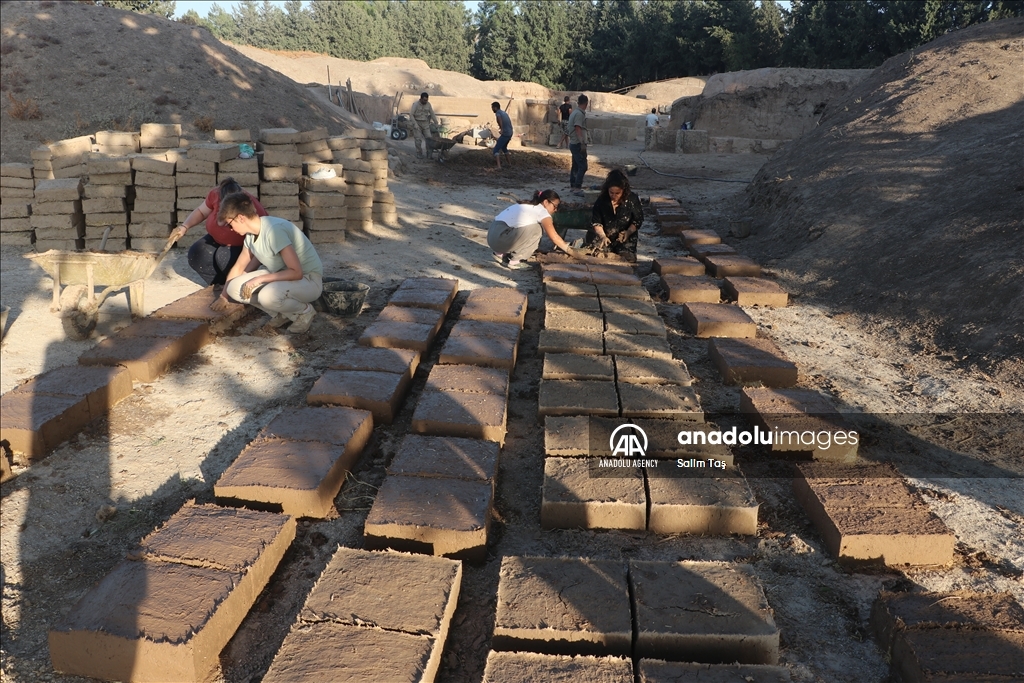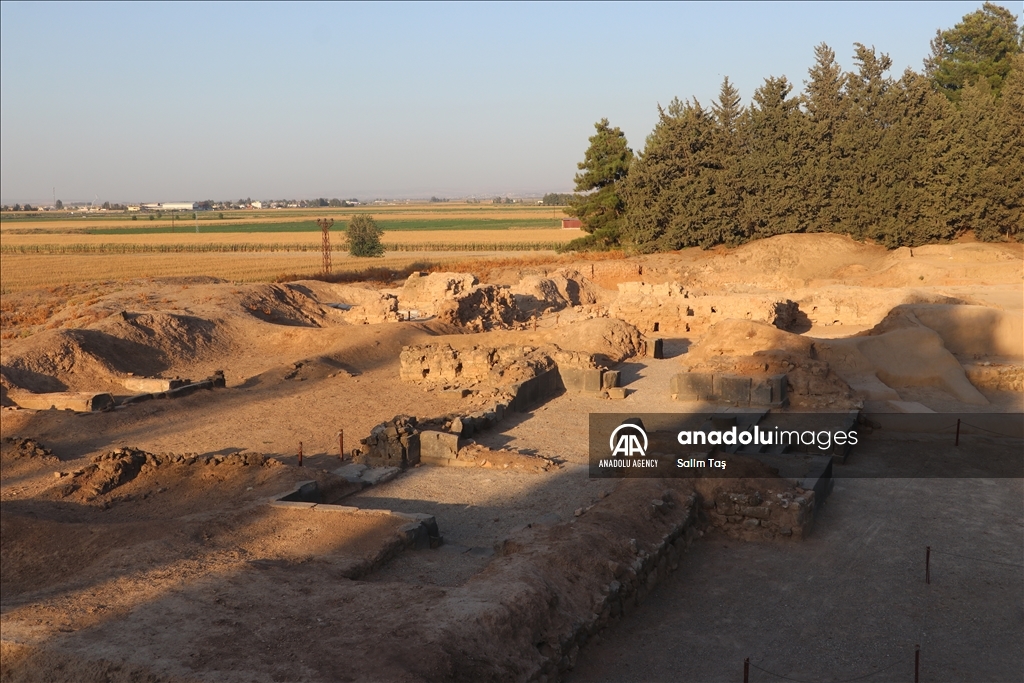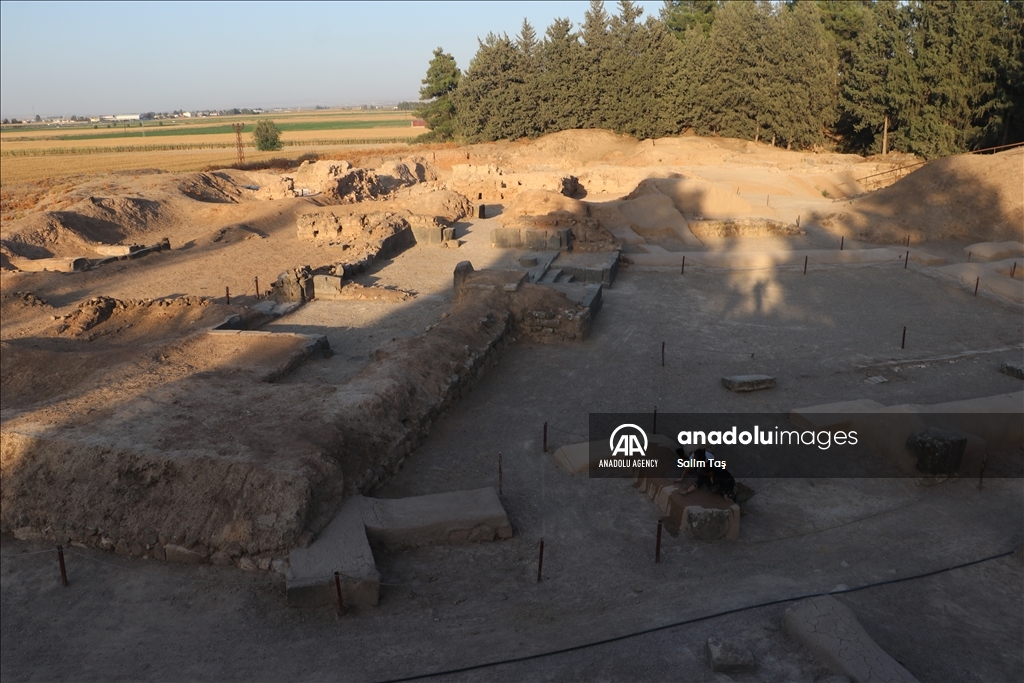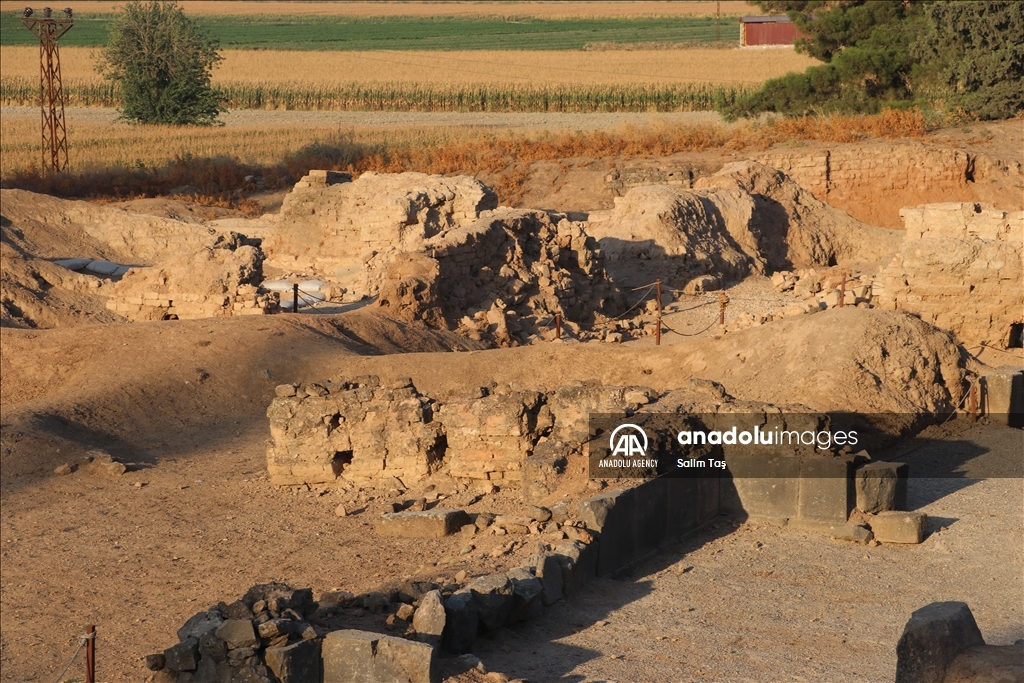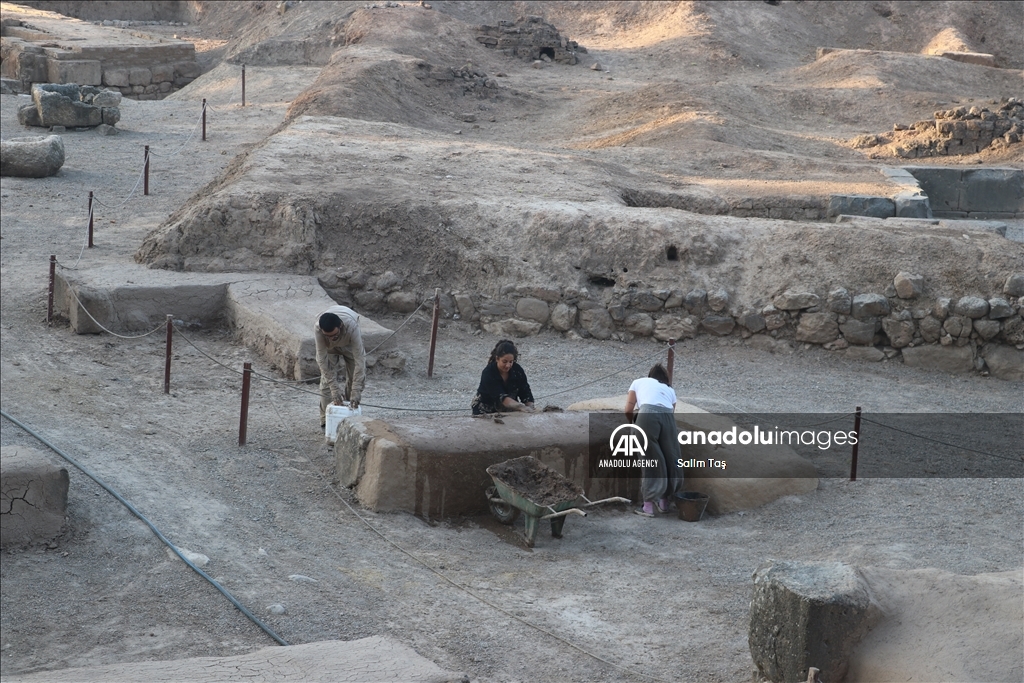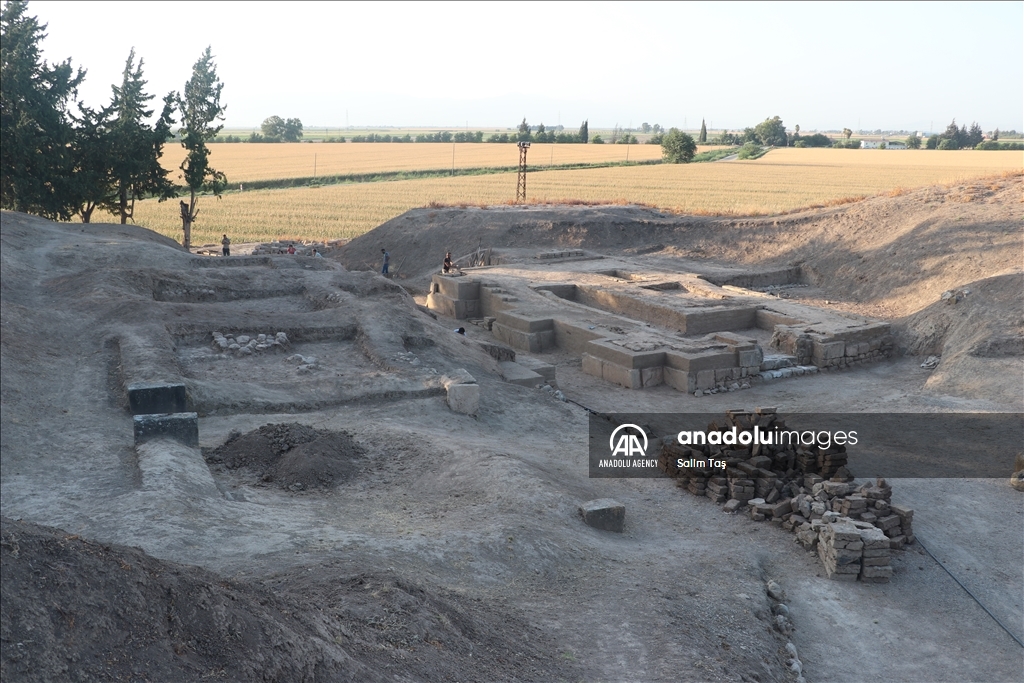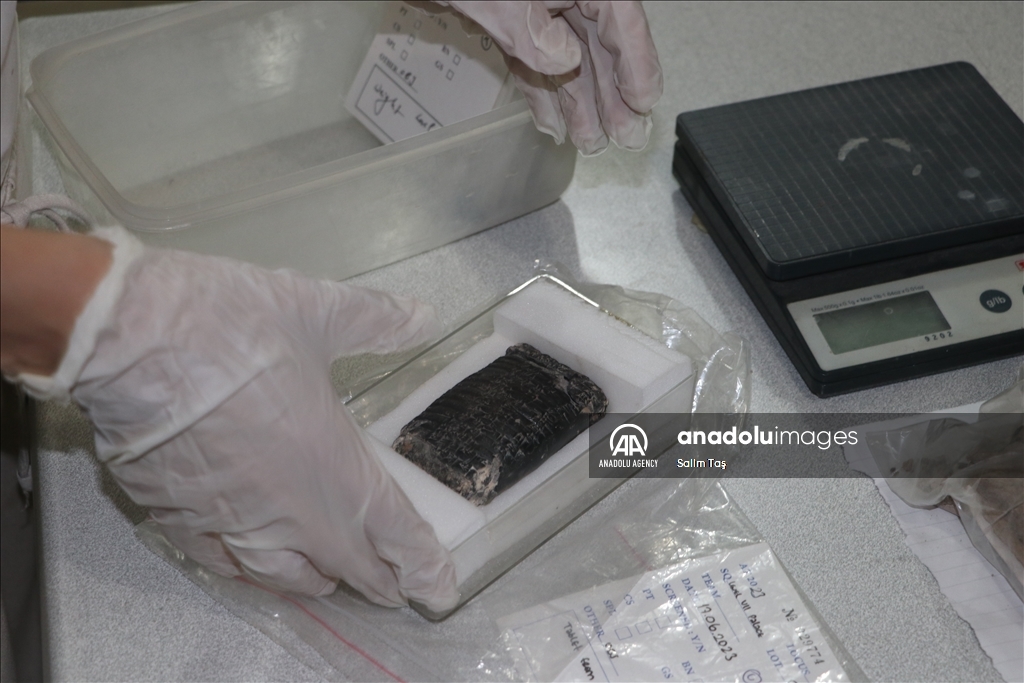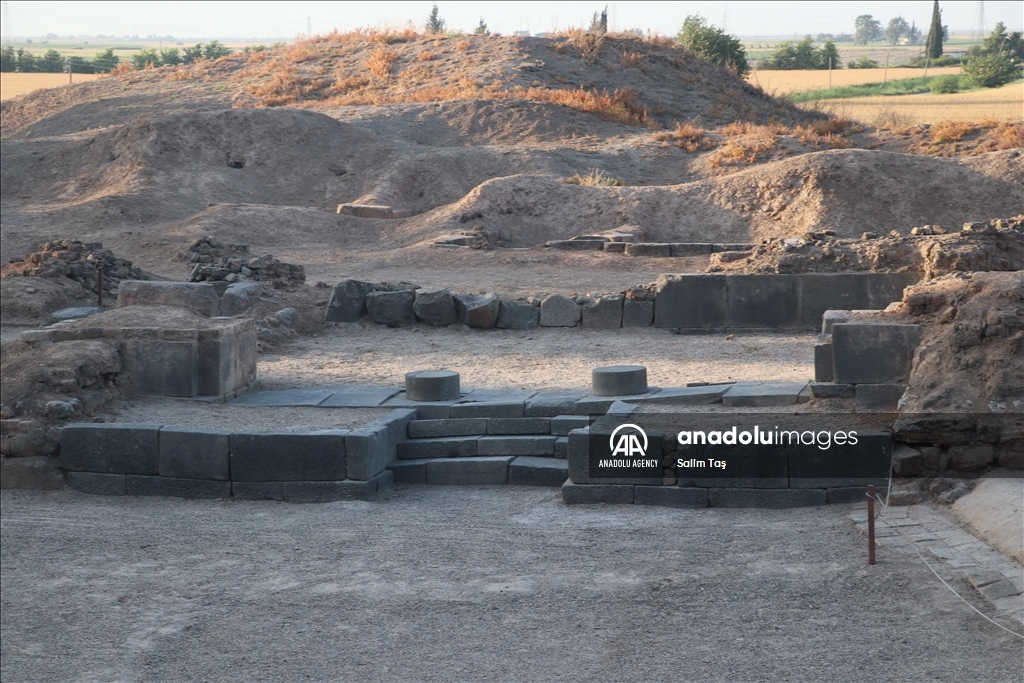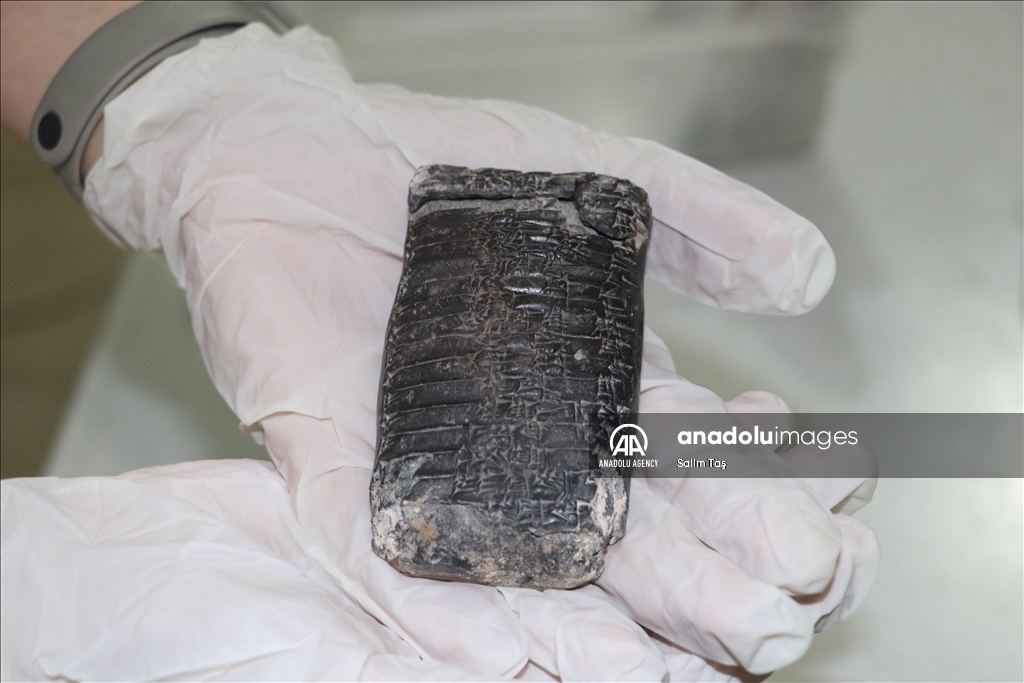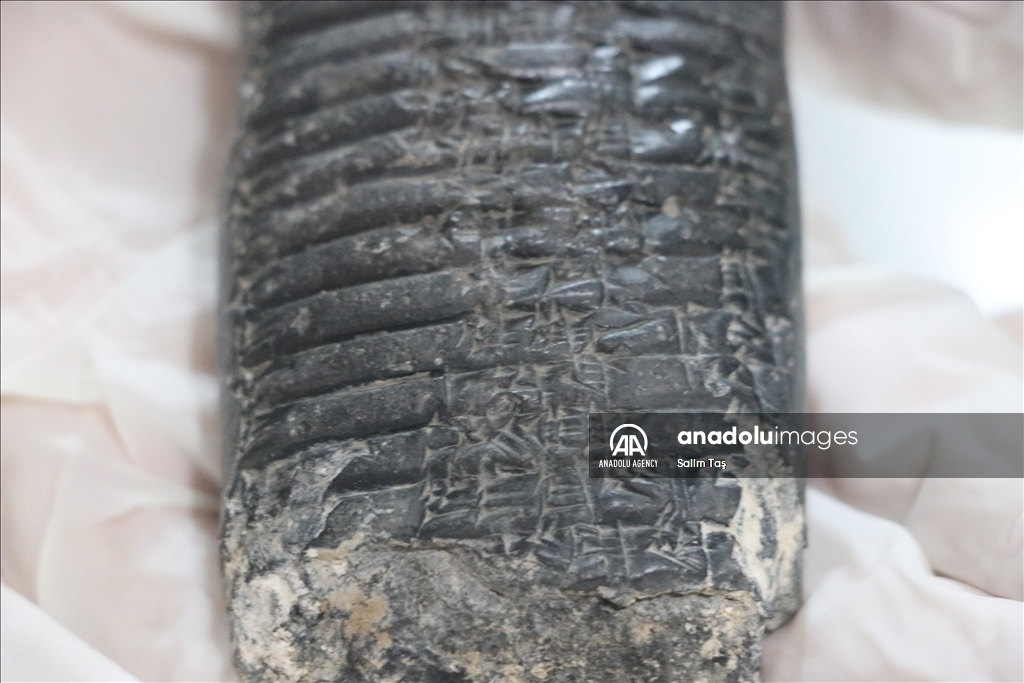3,800-year-old cuneiform clay tablet unearthed in ancient tumulus in southern Türkiye
Tablet features contract on sales of a city, which consists of information about parties, witnesses, says team head
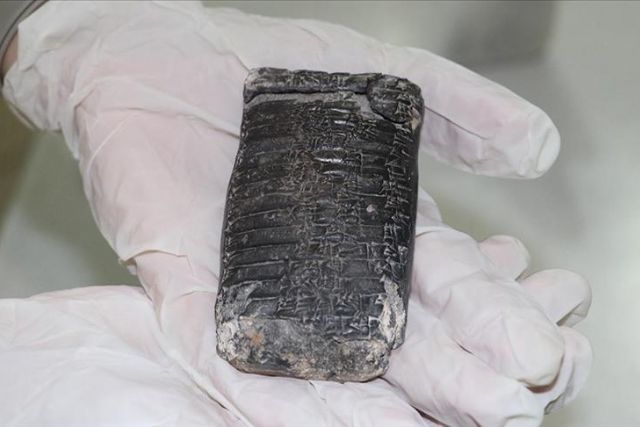
HATAY, Türkiye
Archeologists have discovered a 3,800-year-old cuneiform clay tablet in southern Türkiye during restoration work after the massive earthquakes in the region earlier this year.
Murat Akar, an archeology professor at Hatay Mustafa Kemal University, told Anadolu that a 25-member team found the clay tablet with cuneiform inscription in Akkadian language in nearly 4,000-year-old Accana tumulus in the southern Hatay province.
The Kahramanmaras-centered twin earthquakes on Feb. 6, which caused great destruction in Hatay, also affected the historical site, which was determined to be the location of Alalakh, the capital of the Mukish Kingdom during the Middle and Late Bronze Age periods.
Restoration and protection work have started with the leadership of the Turkish Culture and Tourism Ministry to repair the damages on some parts of the ruins of palace walls, Akar said.
As part of the study, the team that removed the rubble of the walls found a clay tablet among the ruins.
The first examination of the tablet in Akkadian language revealed information containing an agreement made by Yarim-Lim, the first known king of Alalakh, to purchase another city.
Akar said the tablet is not damaged and the finding was “so exciting.”
“It proves us that those kings had the economic power and potential to buy another city in those times.
“There is also the name of the important people of the city who witnessed this sale on the tablet, most likely,” he added.
“The work came out as an extremely unique example, especially to decipher the economic structure of that period, the relationship between cities, the economic and political model,” Akar said.
The tablet will be transferred to a museum after the examinations, said the restoration team head.
*Writing by Merve Berker


